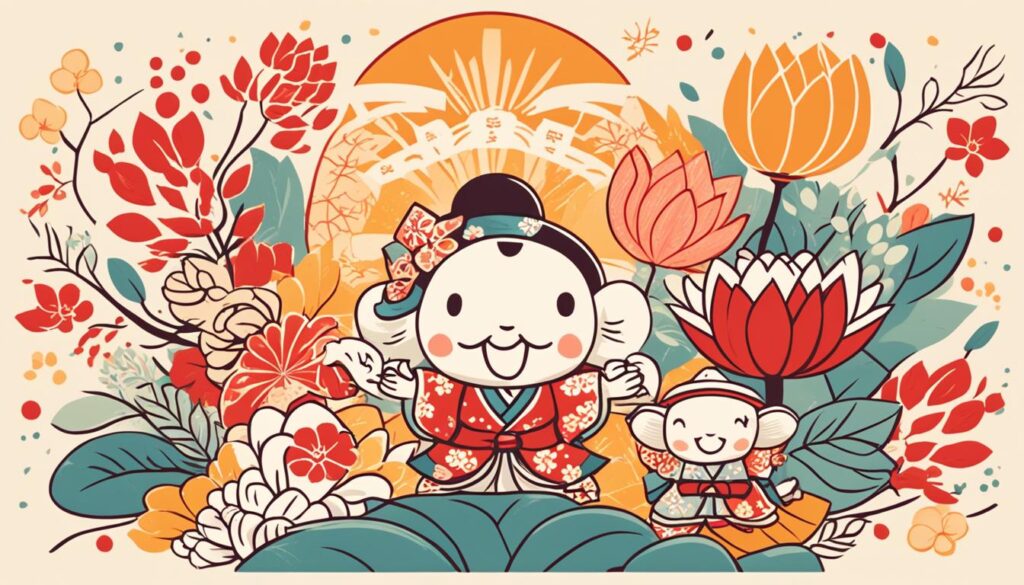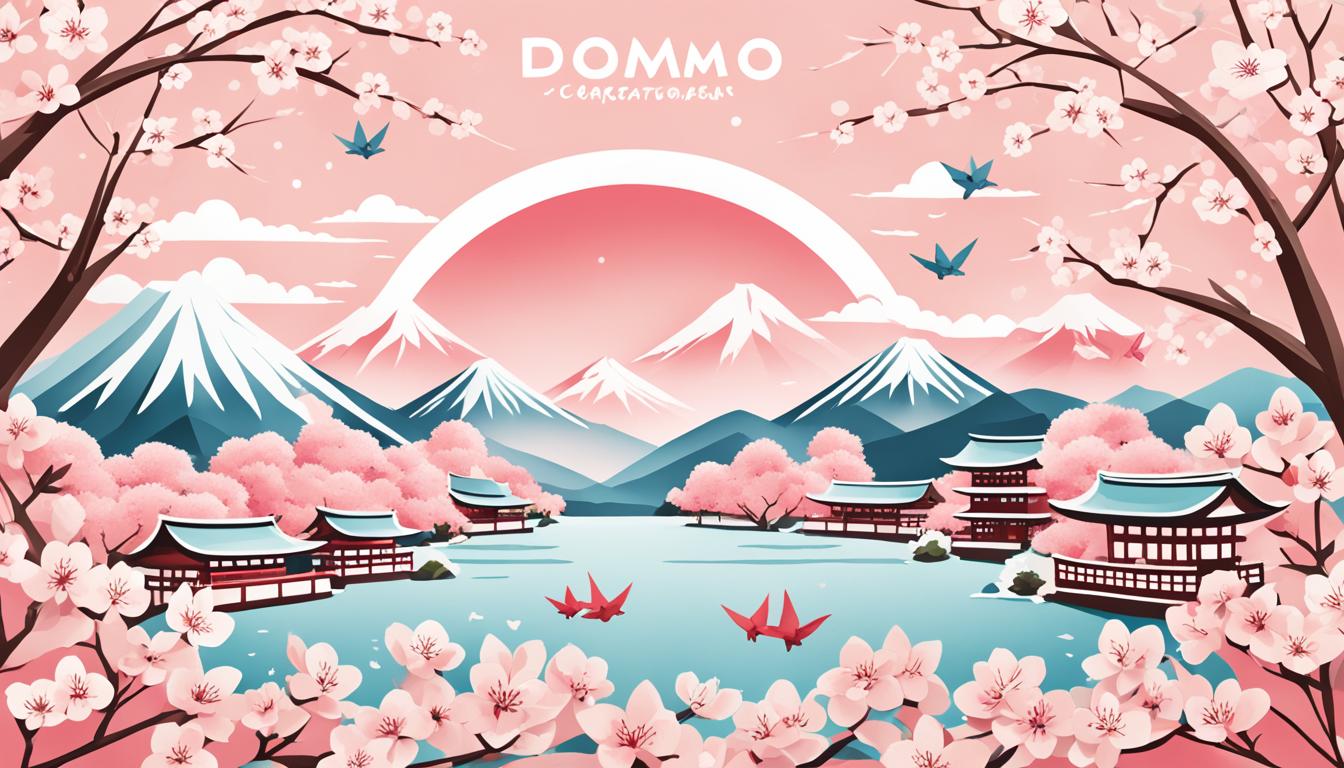In Japanese culture, expressing gratitude is essential, and knowing how to say thank you in Japanese is a valuable skill. Whether you’re visiting Japan or communicating with Japanese speakers, understanding the nuances of gratitude can enhance your interactions and show respect for the local customs.
In this article, we will explore various ways to express gratitude in Japanese, including phrases, pronunciation, and cultural nuances. From casual to formal settings, we will guide you on how to appropriately say “thank you” in Japanese.
Learning Japanese thank you phrases will not only help you show appreciation but also deepen your cultural understanding and forge meaningful connections. Let’s dive into the different expressions of gratitude in Japanese!
The Classic: Arigatou – ありがとう
Arigatou is the most common and informal way to say thank you in Japanese. It directly translates to “thank you.” While it is a widely used phrase, it is considered somewhat casual. It is suitable for friends, family, and people of the same age or younger. Arigatou alone may sound impolite when used with strangers or in more formal settings.
The More Polite Variations on the Classic: Arigatou gozaimasu – ありがとう ございます
Arigatou gozaimasu is a more polite and formal version of arigatou. It is commonly used in work settings, with strangers, or when addressing someone older or more respected. The addition of gozaimasu makes the phrase more respectful and suitable for formal situations. When you want to express gratitude in a polite and respectful manner, arigatou gozaimasu is the perfect phrase to use. Its literal meaning is “thank you very much” and it conveys a sense of deep appreciation and respect.
When pronouncing arigatou gozaimasu, remember that the “g” in gozaimasu is pronounced softly, almost like a whispered “ng” sound. So it would be pronounced as “ah-ree-gah-toh goh-zah-ee-mah-su.”
Arigatou gozaimasu is appropriate to use in various formal settings, such as business meetings, official events, and when expressing gratitude to someone in a higher position or authority. It is also suitable for expressing thanks to strangers or people you have just met. By using arigatou gozaimasu, you show a level of politeness and respect that aligns with Japanese cultural norms.
Thank You Very Much: Doumo Arigatou – どうも ありがとう

When it comes to expressing heartfelt gratitude in Japanese, there is a friendly and casual phrase that stands out: Doumo arigatou. This phrase is commonly used to say thank you very much in a warm and appreciative manner. It is suitable for expressing gratitude to friends, family, and younger individuals.
Doumo arigatou can also be used on its own in casual settings. When you want to convey a sense of warmth and appreciation, this phrase serves as a perfect choice. Whether you are expressing thanks for a small favor or showing your appreciation for someone’s kindness, Doumo arigatou is a versatile phrase that can be used in various situations.
To pronounce Doumo arigatou correctly, break it down into two parts:
- Doumo: Pronounced as doh-moh, with the accent on the first syllable, it means “very” or “really.”
- Arigatou: Pronounced as ah-ree-gah-toh, with each syllable evenly stressed, it is the word for “thank you.”
Knowing when to use Doumo arigatou is also important. This phrase is most appropriate in informal settings when expressing gratitude in a friendly and casual manner. It is best suited for situations where a higher level of formality is not required.
Now, let’s take a look at a table comparing the different Japanese phrases for expressing gratitude:
| Phrase | Formality | Usage |
|---|---|---|
| Arigatou | Informal | Suitable for friends, family, and people of the same age or younger |
| Arigatou gozaimasu | Polite | Used in work settings, with strangers, or when addressing someone older or more respected |
| Doumo arigatou | Casual | Appropriate for friends, family, and younger individuals |
| Doumo arigatou gozaimasu | Extra polite | Expressing deep gratitude or showing utmost respect |
| Hontoni arigatou gozaimasu | Formal | Used to express sincere gratitude in a formal and polite manner |
| Sumimasen | Formal | Commonly used to express gratitude in formal situations or conversations with superiors |
Note: The table is for illustrative purposes and does not represent an exhaustive list of all Japanese phrases for expressing gratitude.
Now that you understand the meaning, pronunciation, and usage of Doumo arigatou, you can incorporate it into your Japanese conversations to express your gratitude in a friendly and casual manner. Remember to use the appropriate level of formality based on the context and the relationship with the person you are thanking.
Thank You Very Much (Extra Polite): Doumo Arigatou Gozaimasu – どうも ありがとう ございます
Doumo arigatou gozaimasu is an extra polite way to say thank you very much in Japanese. The addition of gozaimasu makes it more formal and respectful. This phrase is appropriate for expressing deep gratitude, especially when you want to impress someone or show utmost respect.
When you want to convey a profound sense of appreciation in Japanese, doumo arigatou gozaimasu is the perfect phrase. It goes beyond the standard thank you and expresses a deeper level of gratitude. Whether you want to thank someone for their kindness, generosity, or support, doumo arigatou gozaimasu will convey your heartfelt appreciation.
The pronunciation of doumo arigatou gozaimasu is “doh-moh ah-ree-gah-toh goh-zah-ee-mahss”. Remember to pronounce each syllable clearly and with respect. The word “doumo” adds a friendly and warm tone to the phrase, while “arigatou gozaimasu” adds formality and respect.
In Japanese culture, expressing gratitude is highly valued and considered an essential part of communication. By using doumo arigatou gozaimasu, you show your understanding and respect for Japanese customs. This phrase is suitable for various formal and respectful situations, such as receiving a gift, being helped by someone, or showing appreciation to your superiors.
Really, Thank You Very Much: Hontoni Arigatou Gozaimasu – 本当に ありがとう ございます
Hontoni arigatou gozaimasu is a phrase that adds emphasis to expressing deep gratitude in Japanese. It conveys sincerity and genuine appreciation. When you want to go beyond a simple thank you and truly express your heartfelt gratitude, hontoni arigatou gozaimasu is the perfect phrase to use.
This phrase is less commonly used compared to other thank you expressions, but it is highly effective in showing your sincere appreciation. Whether you want to convey your gratitude to someone who has gone above and beyond to help you or express your thanks for a significant favor, hontoni arigatou gozaimasu carries a stronger sense of gratitude.
Here is the pronunciation of hontoni arigatou gozaimasu:
(hohn-toh-nee ah-ree-gah-toh goh-zah-ee-mahs)
You can use hontoni arigatou gozaimasu in a variety of formal and polite situations, such as:
- Receiving a thoughtful gift or gesture
- Expressing gratitude after receiving praise or recognition
- Thanking a supervisor or someone in a higher position
- Showing appreciation to someone who has provided exceptional service
When using hontoni arigatou gozaimasu, it is important to remember that the level of formality and politeness is elevated. This phrase is especially appropriate in formal settings, business environments, or when expressing gratitude to elders or respected individuals.
To better understand the significance of hontoni arigatou gozaimasu, let’s take a closer look at its individual components:
| Hontoni | Arigatou | Gozaimasu |
|---|---|---|
| 本当に | ありがとう | ございます |
| Truly, Really | Thank you | [Polite auxiliary verb] |
The word “hontoni” means “truly” or “really,” emphasizing the depth of your gratitude. “Arigatou” is the standard word for “thank you,” and “gozaimasu” is a polite auxiliary verb that adds formality and respect to the phrase.
To summarize, hontoni arigatou gozaimasu is a powerful way to express sincere gratitude in Japanese. Whether you want to convey appreciation in a formal or informal setting, this phrase will help you express your heartfelt thanks. Remember to use it when you truly want to convey the depth of your gratitude.
Key Points:
- Hontoni arigatou gozaimasu emphasizes deep gratitude.
- It is less common but conveys sincerity and genuine appreciation.
- Use it in formal or polite situations to express heartfelt thanks.
- The pronunciation is: hohn-toh-nee ah-ree-gah-toh goh-zah-ee-mahs.
Thank You in Formal Situations: Sumimasen – すみません
Sumimasen is an essential phrase in Japanese culture that serves multiple purposes. Traditionally, it is commonly translated as “excuse me” or “sorry,” but it can also be used to express gratitude in formal settings. Understanding when to use sumimasen can help you navigate social interactions and show respect in Japanese society.
When expressing gratitude in Japanese, it is customary to use indirect phrases or actions rather than direct thank yous. This cultural practice showcases humility and avoids excessive self-praise. Sumimasen can be used to convey thanks in situations where English speakers might say “thank you” directly.
Whether you want to acknowledge someone’s kindness, thank them for their help, or express appreciation for a gift, saying sumimasen can effectively convey your gratitude. Use this versatile phrase in formal settings, such as business meetings, conversations with superiors, or when interacting with unfamiliar individuals.
Remember, pronunciation is key. Natives pronounce sumimasen as “sue-mee-mah-sen,” with the emphasis on the second syllable. Practice saying it aloud to ensure your pronunciation accurately conveys your gratitude or apology.

